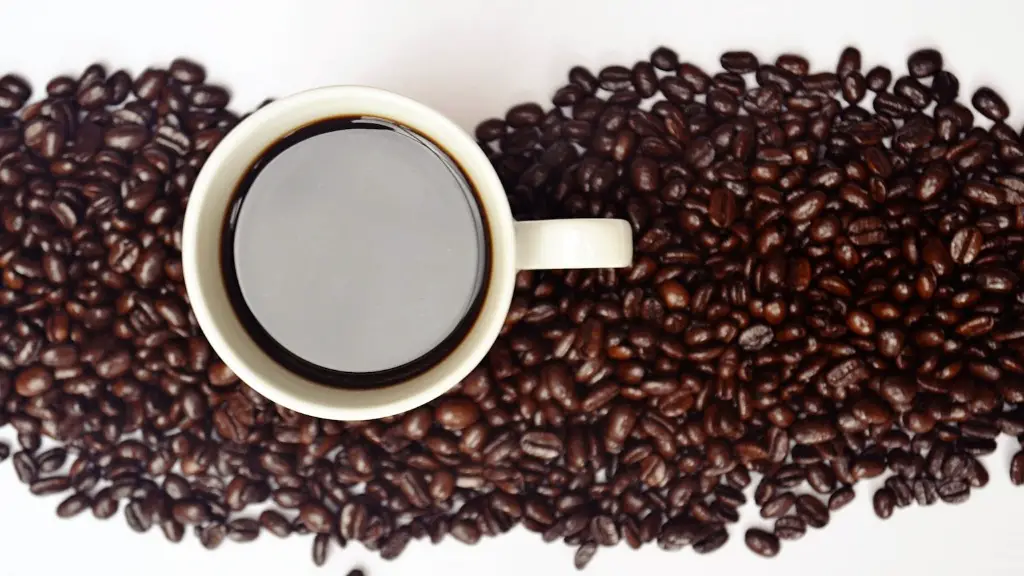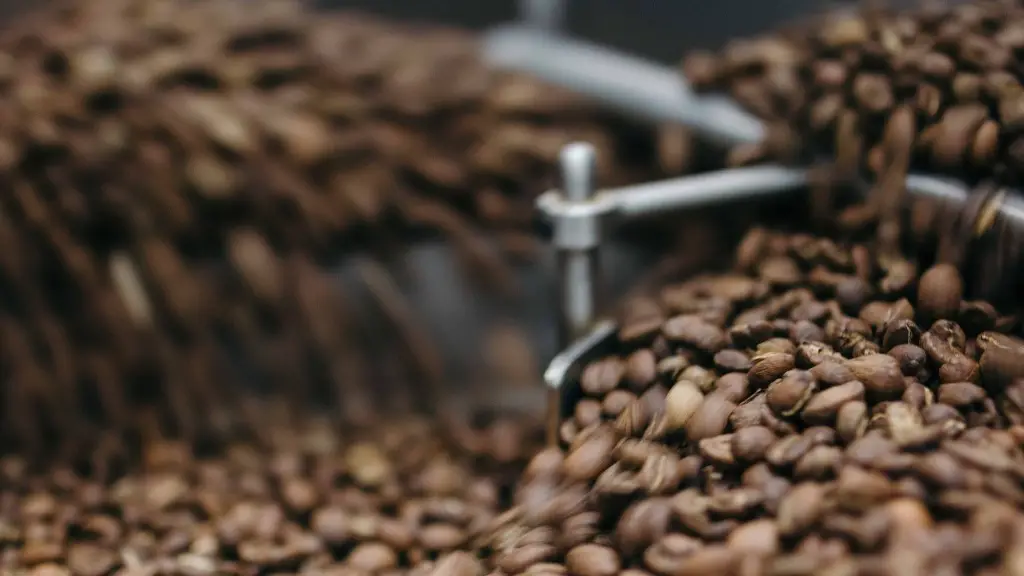Coffee and energy drinks are both popular sources of energy, though they differ in their ingredients and effects. Coffee is a natural source of caffeine with a variety of flavors and can be enjoyed hot or cold. On the other hand, energy drinks are usually artificially flavored and contain more than just caffeine.
When considering which is better for your health, it’s important to consider the potential benefits and drawbacks of each. Coffee contains antioxidants that can help reduce inflammation and boost your immune system, while energy drinks often contain high levels of sugar which can lead to weight gain. Additionally, coffee has less caffeine than most energy drinks so it may be better for those sensitive to stimulants.
In the end, it’s up to you to decide whether coffee or an energy drink is the better choice for you. It’s important to weigh the pros and cons before making a decision.
Pros and Cons of Energy Drinks
Energy drinks are a popular beverage choice among those looking for a boost of energy to get them through the day. But like any other beverage, they come with their own risks and benefits. On one hand, energy drinks can provide a quick burst of energy that can help you stay focused and productive. On the other hand, they also contain high amounts of caffeine and sugar which can have adverse effects on your health if consumed in large quantities or over long periods of time.
A common alternative to energy drinks is coffee. While coffee does contain caffeine, it also contains beneficial antioxidants which may help protect against certain diseases. Additionally, coffee is much lower in sugar than energy drinks so it won’t cause as drastic spikes in blood sugar levels as many energy drinks do. However, some people find that coffee can be too bitter for their taste or can cause jitters when consumed in large amounts.
In the end, it’s important to consider the pros and cons of both energy drinks and coffee when deciding which one is right for you. For most people, moderation is key, especially when it comes to caffeinated beverages like these. If you find yourself drinking more than one or two cups of either every day, then you may want to reconsider your choices in order to maintain your health.
Effects of Caffeine on the Human Body
Caffeine is a naturally occurring stimulant found in coffee, tea, and energy drinks. It is widely used as a pick-me-up to increase alertness and focus. Studies have shown that caffeine can have both positive and negative effects on the human body. Short-term benefits include improved mental alertness and physical performance, while long-term use can lead to dependence, insomnia, and other health issues.
In terms of its effects on physical performance, caffeine has been shown to improve reaction time and muscular strength. It also increases endurance by decreasing perceived effort and fatigue during exercise. Furthermore, it can help regulate blood sugar levels and has antioxidant properties.
When consumed in moderation, caffeine can be beneficial for mental alertness and providing energy throughout the day. Consuming too much may lead to jitteriness, headaches, or restlessness. Additionally, regular consumption of caffeine can eventually lead to tolerance which decreases its effectiveness over time.
The debate between coffee and energy drinks is still ongoing as both contain caffeine but differ in their concentrations of other ingredients such as sugar or additives. Generally speaking, coffee is a better option for those looking for an energy boost due to its lower sugar content. In conclusion, while caffeine can be beneficial in small doses it is important to consume it responsibly as overconsumption can lead to serious health issues.
Common Ingredients in Coffee and Energy Drinks
Coffee and energy drinks both contain some common ingredients, such as caffeine, taurine, guarana, B-vitamins, and sugars. Caffeine is the main stimulant found in both drinks and is an effective way to increase alertness and focus. Taurine is an amino acid found naturally in the body that can help reduce fatigue. Guarana is a plant seed that contains a high amount of caffeine. B-vitamins can increase energy levels and provide essential nutrients. Sugars are added to both drinks for sweetness but also provide a quick burst of energy when consumed.
The key difference between coffee and energy drinks lies in their overall caffeine content. Coffee typically contains more caffeine than energy drinks, with an 8-ounce cup containing approximately 95 milligrams of caffeine compared to the average 50 milligrams found in most energy drinks. As a result, coffee can be more effective at providing an alertness boost than energy drinks. Additionally, coffee has less sugar per serving than many popular brands of energy drink.
Health Benefits Associated with Coffee and Energy Drinks
Coffee and energy drinks are two popular beverages that offer different health benefits. Coffee, in particular, is known for its antioxidant properties, which can help protect the body from free radicals that can damage cells. It also contains compounds such as caffeine that can boost alertness and focus. Energy drinks contain ingredients such as taurine and B vitamins, which can help improve mental clarity and provide a boost of energy. Both coffee and energy drinks provide important vitamins and minerals that are beneficial for overall health.
Coffee is also a great source of essential nutrients such as magnesium, potassium, iron, and calcium. These minerals can help support a healthy immune system and reduce the risk of chronic diseases like heart disease. Furthermore, studies have shown that regular consumption of coffee may also reduce the risk of developing type 2 diabetes.
Energy drinks contain unique ingredients like guarana extract and ginseng root extract which have been linked to increased mental alertness and improved athletic performance. Additionally, some energy drinks contain electrolytes like sodium and potassium which can help replenish electrolytes lost during exercise or strenuous activity.
Overall, both coffee and energy drinks offer important health benefits that should not be overlooked. The key is to consume them in moderation to ensure you are getting the most out of their nutritional value without over-consuming caffeine or sugar.
Nutritional Value Comparison Between Coffee and Energy Drinks
Coffee and energy drinks are both popular beverages that provide energy to people who need it. However, they differ in terms of their nutritional value. Coffee has a high amount of antioxidants and is a good source of vitamins and minerals. It also contains caffeine, which can help improve alertness, concentration, and reaction time. On the other hand, energy drinks contain a variety of synthetic ingredients such as taurine, guarana, caffeine, and sugar that can give you an instant boost of energy.
When it comes to health benefits, coffee is the clear winner. It contains antioxidants that can help reduce inflammation and protect against certain diseases. Coffee also has beneficial effects on cognitive function and mental health. In contrast, energy drinks can be high in sugar or artificial sweeteners which can lead to weight gain over time. They also may contain stimulants like caffeine which can cause jitteriness or insomnia if consumed in high amounts.
Overall, coffee is the better choice when it comes to nutritional value. It provides more health benefits than energy drinks without the potential side effects. Coffee is an excellent source of vitamins and minerals that provide numerous health benefits.
Side Effects of Coffee and Energy Drinks
Coffee and energy drinks are popular beverages consumed around the world. While coffee has been linked to many health benefits, it can also be associated with potential negative side effects when consumed in large amounts. Energy drinks have also been linked to adverse effects, including impaired judgement and increased heart rate.
Coffee contains caffeine, a stimulant that can cause physical and mental stimulation when consumed in large doses. This can lead to increased alertness, improved focus, and elevated mood. However, too much caffeine can also lead to jitters, anxiety, restlessness, and insomnia. When consumed in large amounts over a long period of time, coffee can also be associated with an increased risk of heart disease.
Energy drinks contain significantly more caffeine than coffee and are often loaded with sugar and artificial ingredients that may not be beneficial for health. High doses of caffeine from energy drinks have been linked to an increased risk of high blood pressure and heart palpitations as well as a rapid heartbeat. Additionally, the high sugar content in energy drinks may lead to weight gain or diabetes if consumed excessively for a long period of time.
When considering the potential side effects associated with both beverages, it is important to consider moderation for both coffee and energy drinks. In general, drinking coffee in moderation is likely safe for most people while consuming energy drinks should be done sparingly due to the higher levels of caffeine and sugar they contain.
To Sum it All Up
Coffee and energy drinks are both popular beverages, but they differ in a few important ways. Coffee is a natural source of caffeine that can give you an energy boost without added sugar and unhealthy ingredients. Energy drinks tend to have more caffeine than coffee, but they can also contain large amounts of sugar, artificial colors, and other potentially harmful additives. In terms of health benefits, coffee is generally the better option. It has been linked to numerous health benefits, including improved cognitive function and protection against certain diseases.





